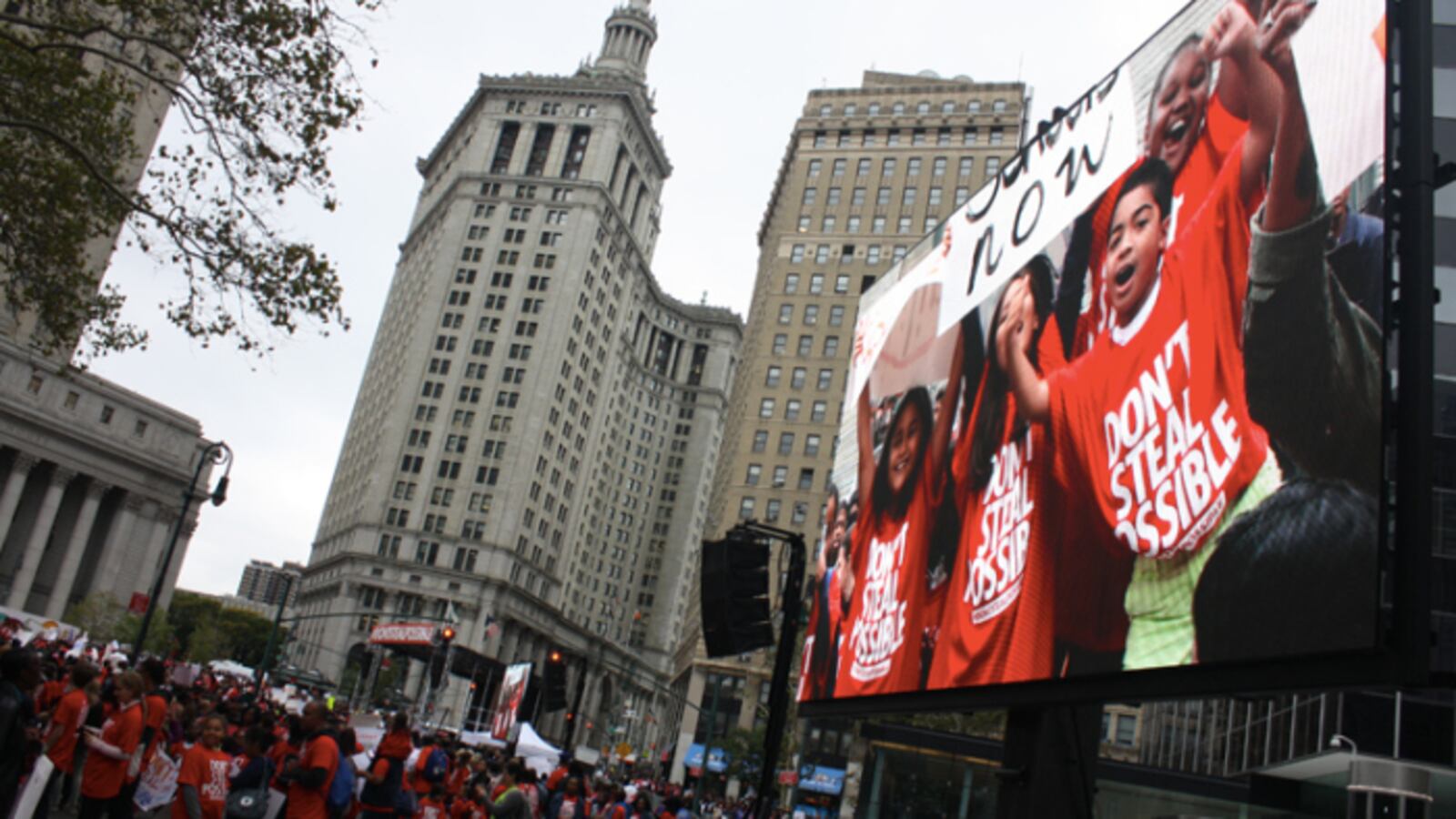Under pressure from Success Academy CEO Eva Moskowitz, city officials announced Thursday that they would find space for eight of the 14 schools being opened by the charter school network in the next two years.
The decision allowed the city to skirt a new battle with the charter-school chief, who abruptly cancelled a press conference she had planned to hold outside City Hall after she received word that the city planned to accommodate some of Success’ requests.
In a statement, Chancellor Carmen Fariña said that the city would find space for eight of 10 Success Academies approved to open in the 2016-17 school year, though the city has not specified whether that space will be inside of city schools or in private space. The city also plans to find space for two existing Success elementary schools.
Fariña did not specify if the city planned to find space for four other Success Academy schools approved to open next year. But her word was apparently enough of a pledge for Moskowitz, who hammered the city last spring after the de Blasio administration denied three of her schools space in public buildings.
“After five months of waiting, Success Academy is eager to resolve these space issues, and is committed to finding the best possible solution for our families,” Moskowitz said in a statement.
Charter-school space decisions are under a microscope this year thanks to Moskowitz’s fight earlier this year. A vigorous lobbying campaign resulted in a new law that requires the city to provide new or expanding charter schools with space or additional funding, and requires schools to file a formal request for that space.
The city has not been as accommodating to all charter schools that requested space this year. The city denied public space to two schools approved to open in 2015-16, International Charter School of New York and Brooklyn Prospect Charter School. In September, the city said it would offer space to four charter schools, including two Success Academies, but denied a fifth school’s request.
Those schools have appealed to the state for rent subsidies, setting off another round of legal maneuvering. The city has challenged International’s appeal on grounds that its request for funding “exceeds that authorized by law,” according to a legal briefing filed by city lawyers earlier this month.
Meanwhile, Amber Charter School II submitted its request on Sept. 15 and is among the schools still waiting to hear back from the city, which has five months to respond. Other schools’ requests, including that of Great Oaks Charter School, which opened in private space last year, have not received a response though the deadline has come and gone.
Offering charter schools space in a private facility would allow de Blasio to steer clear of having to approve co-locations, a contentious process that he has vowed to improve.
One of the schools that the city said it would provide space to is Cobble Hill Success Academy, an elementary school housed in a building with two high schools and a District 75 program that serves students with severe disabilities. As public advocate, de Blasio called for an investigation into the school over its handling of light fixtures containing PCBs.
The Cobble Hill school is sited in its current building through the 2016-17 school year, but it could be moved because it is co-located with two high schools and a program serving students with disabilities, two factors that violate space-sharing criteria that Fariña established earlier this year.
“We treat every proposal equally, and maintain the same priorities when reviewing every school’s request to ensure co-locations maximize space to provide an excellent education for all children,” Fariña said in a statement.

